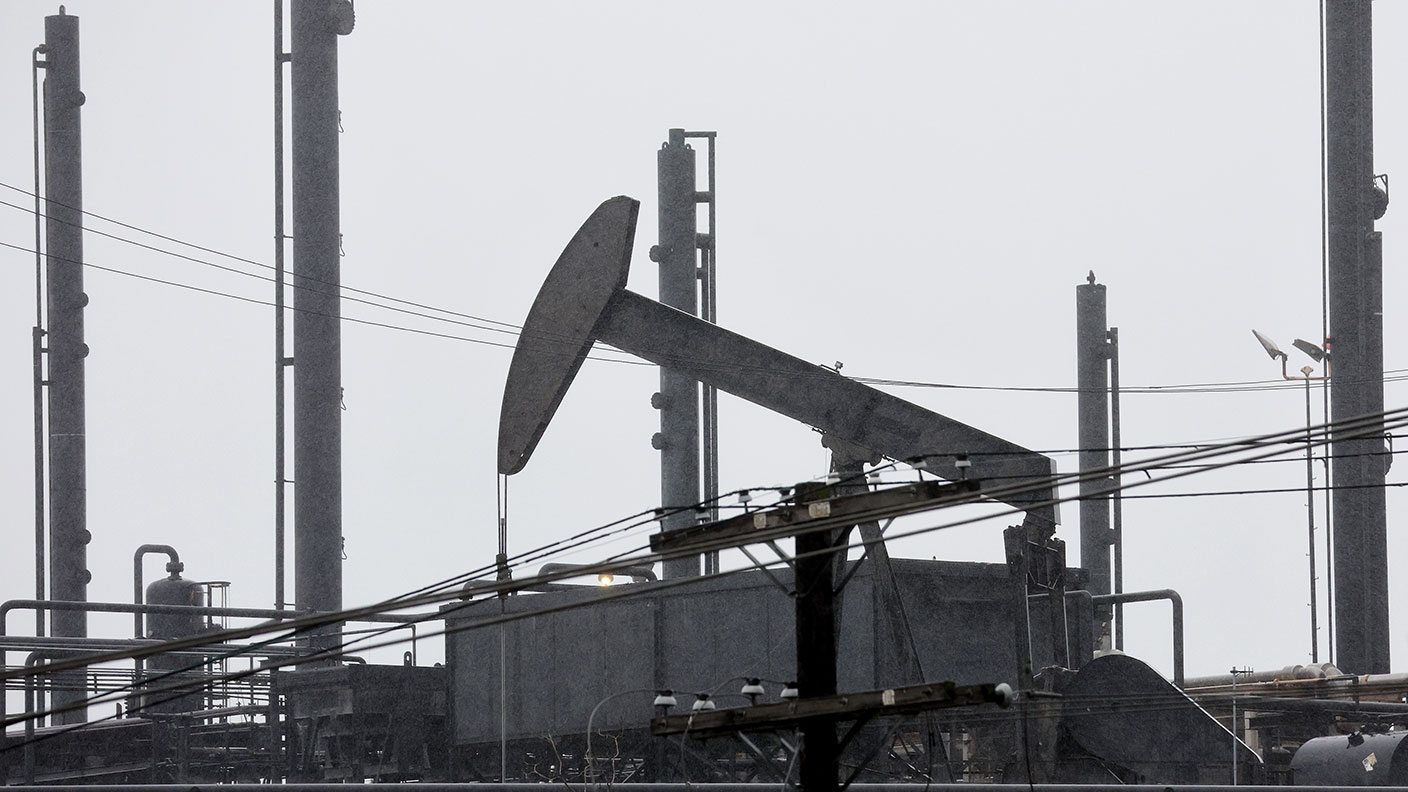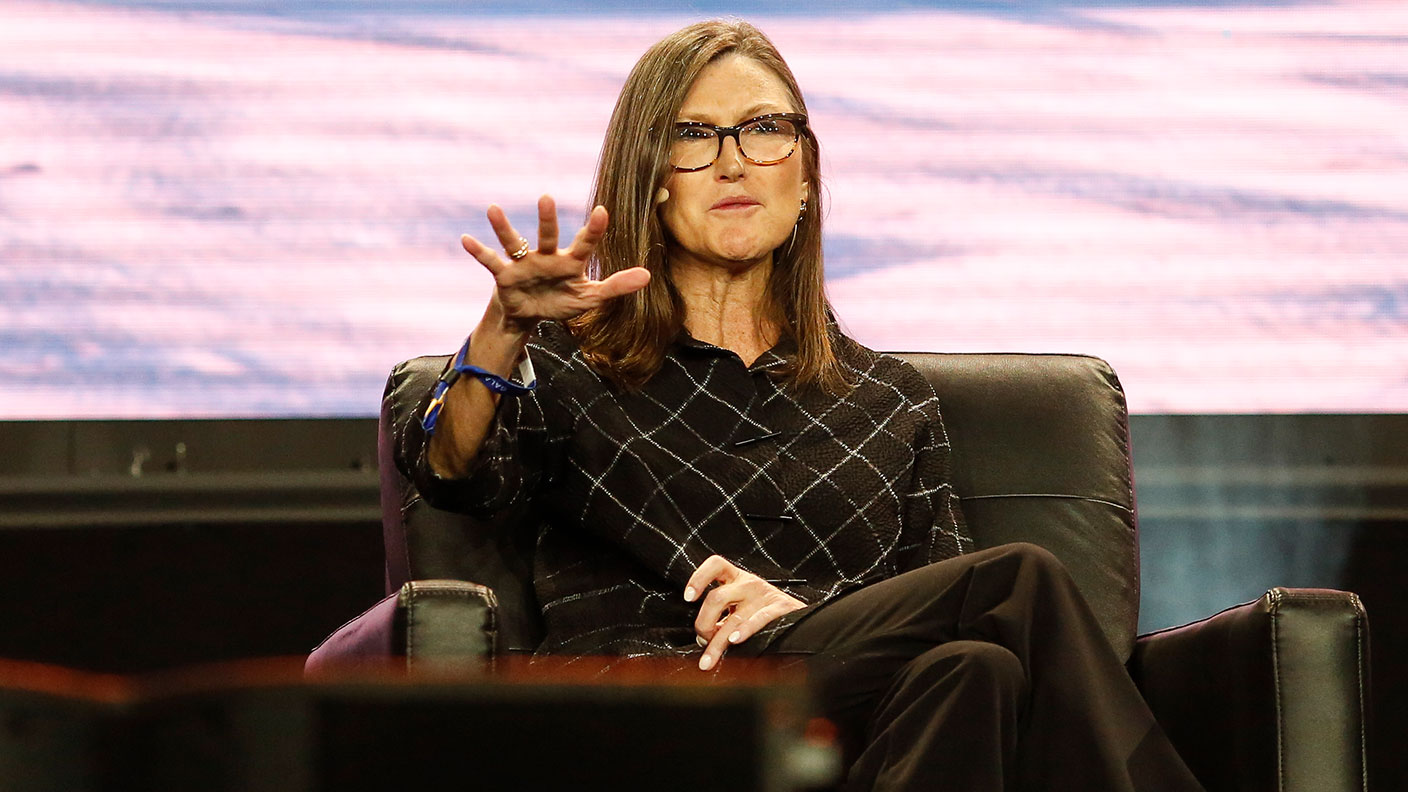Get the latest financial news, insights and expert analysis from our award-winning MoneyWeek team, to help you understand what really matters when it comes to your finances.
You are now subscribed
Your newsletter sign-up was successful
Want to add more newsletters?

Twice daily
MoneyWeek
Get the latest financial news, insights and expert analysis from our award-winning MoneyWeek team, to help you understand what really matters when it comes to your finances.

Four times a week
Look After My Bills
Sign up to our free money-saving newsletter, filled with the latest news and expert advice to help you find the best tips and deals for managing your bills. Start saving today!

This morning we have another guest essay from Tim Price. But just before we turn to Tim, a quick reminder to tune in tomorrow lunchtime for John's webinar with currency specialists OFX sign up here.
During the first Gulf War, a US general was being interviewed by one of the news networks.
The pounding of Baghdad by US forces seemed to the casual observer, at least somewhat, let us say, one-sided. "General, aren't you in danger of running out of targets?"
MoneyWeek
Subscribe to MoneyWeek today and get your first six magazine issues absolutely FREE

Sign up to Money Morning
Don't miss the latest investment and personal finances news, market analysis, plus money-saving tips with our free twice-daily newsletter
Don't miss the latest investment and personal finances news, market analysis, plus money-saving tips with our free twice-daily newsletter
The response, when it came after a brief pause, was somewhat laconic. "No Sir, this is a very target-rich environment."
One feels the same way today about potential threats to the global investor's well-being.
It usually pays to be optimistic, even when you don't feel it
Put aside the risks associated with Brexit; or an accidental Jeremy Corbyn-led government; or the messy stand-off between the US and China, increasingly on everything.
Whereas the great value investor Peter Cundill once remarked (in a more positive light) that there was always something to do, from the vantage point of late 2019 it feels like there is always something to be petrified about.
From an evolutionary perspective, it makes sense to have at least some concerns about potential threats. Ancient hunters who had no qualms about leaping over cliffs, sight unseen, or taking on unusual noises in the dark, probably left little genetic legacy.
But knowing just how many known or unknown unknowns we should fear can be tiring. The news cycle is a demanding mistress; ditto the infotainment industry supercharged by social media.
The institutional investor Tony Deden has written well of the psychodrama that comes from attempting to surf the data and opinion Niagara: "Daily, my mailbox is full of emails, many of which come from well-meaning friends. Have you seen this article?' or Do you know this guru?'
"I follow the links as I frantically go from thenewyorktimes.com to financialarmageddon.com and everywhere in between. The dollar will rebound', Gold is another bubble', Buy bonds', Sell bonds', Pork bellies are undervalued', and so on.
"I pretend to read some of these writings just so that I can make up something to say should they follow up the email with a telephone call. In an enduring quest for understanding and picking kernels of knowledge, I find myself surrounded in an epochal and mad battle of the optimists versus the pessimists.
"Honestly, there are intractable and momentous problems which should be the cause of considerable pessimism. But when it comes to action with other people's money particularly the irreplaceable kind merely on account of the free advice of a well- known guru who writes for the-world-is-coming-to-an-end.com is complete madness."
That said, he adds: "to follow the advice of an analyst working for a bank that can't even manage its own balance sheet and who is intentionally or accidentally divorced from reality, is madness squared."
The author Yuval Noah Harari, in Sapiens, highlighted the extent to which we are suckers for narrative. We are just as easily seduced by determined optimism, a topic embraced by Barbara Ehrenreich in her study Bright-Sided: How the Relentless Promotion of Positive Thinking has Undermined America.
When relentless optimism mates with financial markets, the result is almost always a disaster. And yet over the very long run, being optimistic about the markets has tended to be the right thing to do. Not for nothing is the Dimson, Staunton, Marsh study of the last century of stockmarket returns titled Triumph of the Optimists.
The weird world of negative interest rates
So what's our specific beef? Since 2008 (if not long before), we have been increasingly concerned that central bankers throughout the world have given every indication that they haven't got a clue what they're doing.
As John Maynard Keynes wrote in his essay The Great Slump of 1930: "We have involved ourselves in a colossal muddle... having blundered in the control of a delicate machine, the working of which we do not understand. The result is that our possibilities of wealth may run to waste for a time perhaps for a long time."
But Keynes was only half-right, if that. The Great Depression would certainly run on for the best part of a decade. Generations of American schoolchildren have been taught that President Franklin D. Roosevelt was then parachuted in and that his New Deal saved the day.
Perhaps. Or perhaps the Second World War stepped in and lifted the US out of its slump at the cost of tens of millions of lives.
More to the point, Keynes' metaphor of economy-as-machine was never remotely true. As the classical or Austrian economists were among the first to appreciate, the economy is not a machine that rigidly obeys simple commands and obediently responds to the pull of specific levers. The economy is us.
More relevant still, government is not the font of all wealth. It is not even the font of any wealth. Governments merely redistribute (and tax and spend). Wealth is created by entrepreneurs.
But weird things happen at and below the zero lower bound, when interest rates reach and then break below zero. Zombie companies with unlimited access to free money, deflationarily crowd out the more productive efforts of genuine entrepreneurial risk-taking.
WeWork founders retire at 40 as billionaires. Terrified elderly workers in the eurozone, seeing the destruction of their precious and irreplaceable pension capital by negative interest rates, elect to save even more.
As Captain Smith remarks to the shipbuilder Thomas Andrews in A Night to Remember, as the RMS Titanic slowly sinks beneath the waves, with 2,200 souls on board and room on the lifeboats for only 1,200: "I don't think the Board of Trade regulations ever visualised this situation. Do you?"
So, how can we invest sensibly without being left vulnerable to market-timing? By being always more or less fully invested, but across a broad array of sensibly priced assets offering multiple, discrete, uncorrelated potential return streams. In other words, we place our irreplaceable client capital as best we can.
We invest in what we consider only the most secure forms of listed equity, namely businesses run by principled, shareholder-friendly owner-managers who are also superb allocators of capital, and even then only when the shares of those businesses can be purchased at a discount, or no great premium, to their inherent worth.
We then supplement those holdings in our managed accounts with uncorrelated vehicles (systematic trend-following funds) which offer the potential for both decent gains as well as portfolio protection in the event of pronounced market shocks.
We then double down on portfolio-, inflation- and crisis-protection by means of the monetary metals, gold and silver, which can't be magicked into being by bewildered central bankers but which have been stores of value for thousands of years.
As the song says, there may be trouble ahead. But if it does make sense to panic, panic early.
Tim Price is co-manager of the VT Price Value Portfolio and author of Investing Through the Looking Glass: A Rational Guide to Irrational Financial Markets.
Get the latest financial news, insights and expert analysis from our award-winning MoneyWeek team, to help you understand what really matters when it comes to your finances.
-
 Should you buy an active ETF?
Should you buy an active ETF?ETFs are often mischaracterised as passive products, but they can be a convenient way to add active management to your portfolio
-
 Power up your pension before 5 April – easy ways to save before the tax year end
Power up your pension before 5 April – easy ways to save before the tax year endWith the end of the tax year looming, pension savers currently have a window to review and maximise what’s going into their retirement funds – we look at how
-
 Are UK house prices set to fall? It’s not so simple
Are UK house prices set to fall? It’s not so simpleAnalysis Figures suggest UK house prices are starting to slide, but we shouldn’t take these numbers at face value, explains Rupert Hargreaves.
-
 Tesco looks well-placed to ride out the cost of living crisis – investors take note
Tesco looks well-placed to ride out the cost of living crisis – investors take noteAnalysis Surging inflation is bad news for retailers. But supermarket giant Tesco looks better placed to cope than most, says Rupert Hargreaves.
-
 It may not look like it, but the UK housing market is cooling off
It may not look like it, but the UK housing market is cooling offAnalysis Recent house price statistics show UK house prices rising. But John Stepek explains why the market is in fact slowing down and what this means for you.
-
 Think the oil price is high now? You ain’t seen nothing yet
Think the oil price is high now? You ain’t seen nothing yetAnalysis The oil price has been on a tear in recent months. Dominic Frisby explains why oil in fact is still very cheap relative to other assets.
-
 What can markets tell us about the economy and geopolitics?
What can markets tell us about the economy and geopolitics?Sponsored Markets have remained resilient despite Russia's war with Ukraine. Max King rounds up how reliable the stockmarket is in predicting economic outlooks.
-
 The tech bubble has burst – but I still want a Peloton
The tech bubble has burst – but I still want a PelotonAnalysis Peloton was one of the big winners from the Covid tech boom. But it's fallen over 90% as the tech stock bubble bursts and and everything else falls in tandem. Here, Dominic Frisby explains where to hide as markets crash.
-
 The market is adjusting to a new “short dreams, long reality” world
The market is adjusting to a new “short dreams, long reality” worldAnalysis As interest rates rise, things are starting to change, says John Stepek. Reality is biting back. Gone are the fanciful ideas built on hope – a business now needs a solid foundation.
-
 Are UK house prices heading for a fall?
Are UK house prices heading for a fall?Analysis UK house-price growth is slowing as interest rates rise. But interest rates aren’t all that matters for house prices, says John Stepek.